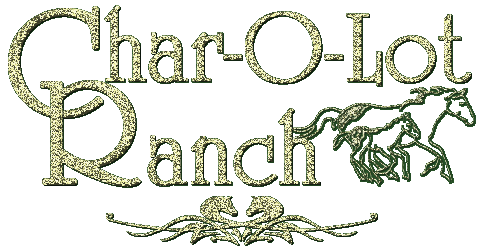MARE PREPARATION
Call your veterinarian!!! Discuss everything in the contract with him. Without his expertise, your mare will probably not get in foal. Be sure that he is very comfortable with being able to predict and pinpoint your mare’s ovulation. If your mare is a difficult breeder and usually takes more than one cycle to conceive, or she is a chronically dirty mare, she is probably not the mare you wish to use with shipped semen.
If you plan to breed your mare early in the season she needs to be kept under lights for a minimum of 60 days prior to breeding season. Lights should be kept on a timer to insure they are on and off at the same time every day- just a few days without lighting can throw your mare back into anestrus. Lights need to be bright enough to be able to read a newspaper in all four corners of the stall and they need to be on for 16 hours every day. This protocol works for 90+% of mares, however there are still some mares that do not respond to artificial lighting protocol.
Tease your Mare!!! Keep track of her cycles and be sure that she is cycling regularly (not transitionally). Normal cycles generally last 5-7 days with approximately 18 days of no heat in between. Be sure that she has a clean culture and a clean cytology. (Cultures are not always completely accurate, especially early on in the breeding season so a cytology is a good idea. A quick ultrasound of her uterus at this time is a very good idea. This will enable your vet to see if your mare has fluid in her uterus or if she has any existing cyst that could be misinterpreted as an early pregnancy.)
If your mare is currently in foal: we suggest (this is our farm standard procedure) your veterinarian flush the mare with Gentocin Bi-Carb and saline solution, followed by a 1cc Oxytocin injection on the day following foaling. This will enable him to visually check her vagina for necessary repairs as well as manually feel for any internal injuries that may have occurred during foaling. This mare normally will cycle 8-15 days following her foaling. We have had mares cycle as soon as six days post foaling, but that is unusual. Teasing these mares is also important. Bear in mind, some mares will tease to anything on hoofs, some mares will tease only to certain studs or some only to geldings. Some mares will not tease at all and will need to be palpated to ascertain where she is in her cycle. Some mares will also tease even when they are pregnant. Those mares should not be teased on a regular basis once they are confirmed in foal by ultrasound. They should have their progesterone levels tested to insure they have adequate P-4 levels to maintain pregnancy.
When your mare begins to cycle!!! Call or e-mail the farm to notify us of the estimated date that you will want the semen shipped. Call the farm by 9:00 a.m. (Eastern Standard Time) on the morning that you need the semen shipped. This gives us sufficient time to collect the stallion and notify Fed-Ex that we need pick up for that day. Monday, Wednesday, Friday are our collection days!! If you need a shipment on an off breeding day, there will be an additional $200.00 collection fee charge. Your vet will probably want to palpate your mare every day when she gets close to ovulating. He also needs to palpate 48 hours after inseminating to be sure your mare did ovulate. If the semen is being shipped directly to you, notify your vet as soon as it arrives so that he can inseminate your mare as soon as possible. Do not open the canister until your vet is ready to inseminate. When your vet has inseminated your mare, the Hamilton-Thorne Equitainer or Equine Shipper box needs to be Fed-Exed back to us (economy freight is fine). This insures that we have cannisters and shippers boxes available for the next person who needs one. Once your mare has ovulated, continue to tease your mare if at all possible to insure that she doesn’t short cycle back into heat. On day 16 following her ovulation, have your veterinarian ultrasound for pregnancy. Notify the farm of the results. Day 21 re-ultrasound to verify again. The majority of embryos that are lost occur during days 16-21. Day 30 recheck again to be sure your mare is still in foal. Please call or E-mail the Farm to confirm your pregnancy.
Note: Breeding services will not be offered a la carte this breeding season, package fees are required. Package fees will be prorated if the mare arrives mid month or leaves mid month. Billing will still be due every 30 days.


